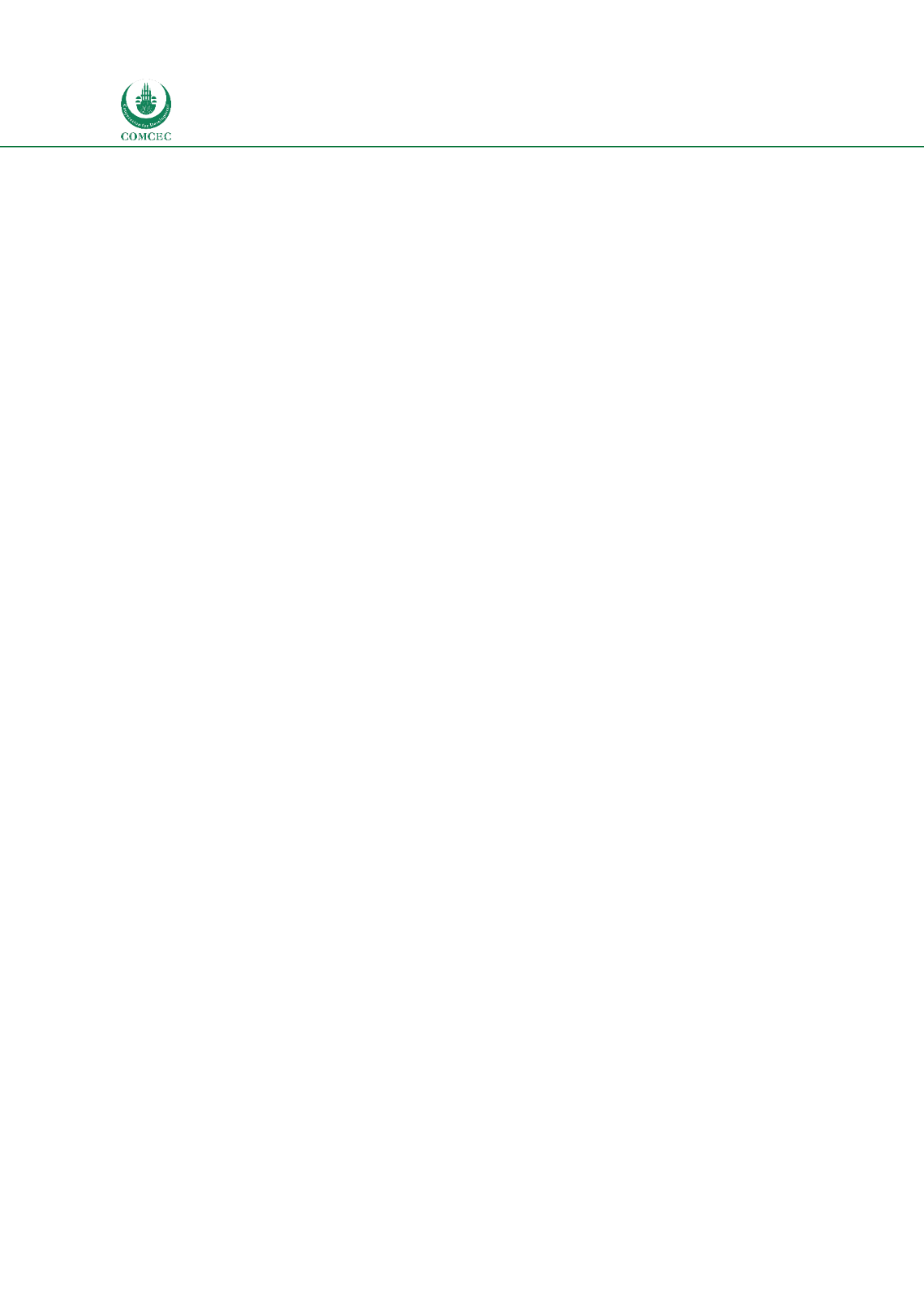

National and Global Islamic Financial Architecture:
Problems and Possible Solutions for the OIC Member Countries
48
3.3.
Shariah
Governance Framework
Shariah
governance framework is an important determinant of Islamic banking practices and
the types of products offered. In a survey of Islamic financial institutions, 21% of the
respondents identify
Shariah
compliance issues as being among the biggest internal threats
(MEGA 2016: 51). Thus, a robust Shariah governance regime that can ensure Shariah
compliance in Islamic financial institutions is required. IFSB (2008) proposes four aspects that
Shariah
governance systems should entail at the level of Islamic financial institutions. These
are issuance of
Shariah
pronouncements, ensuring day to day compliance with the
Shariah
pronouncements, internal
Shariah
compliance review and audit, and annual
Shariah
compliance audit to ensure that the internal
Shariah
compliance review has been properly
carried out. To undertake these functions, IFSB identifies different
Shariah
organs which
include an in-house
Shariah
compliance unit/department, internal
Shariah
review/audit unit
and SSB.
The IFSB (2008) leaves the responsibility of
Shariah
governance at the level of organizations
without any firm commitment to regulatory overview. However, to reduce
Shariah
compliance risks and ensure that the Islamic banks fulfill their fiduciary duties of conducting
business according to
Shariah
principles, there may be a need for the regulatory bodies to
provide
Shariah
governance frameworks and guidelines.
Two broad criteria can be used to
classify Shariah governance regimes. The first is the existence of a national framework for
Shariah
governance in the form of law/regulations supported by a complementary national
Shariah
supervision mechanism at the regulatory level. The goal of the national
Shariah
governance framework will be to accomplish the broader
Shariah
requirements of the
industry and protect the interests of stakeholders not served at the organizational level. An
active national
Shariah
authority (NSA) will be able to address
Shariah
/
fiqh
related issues,
harmonize
Shariah
interpretations, and ensure compliance with
Shariah
principles. Another
important area that would help reduce legal risks is the product clearance role where the NSA
would identify the permissible modes of financing/investment and clear all new products
coming into the market.
The second aspect of the
Shariah
regulatory framework would set up requirements to
strengthen the organizational
Shariah
governance structures and processes. Other than
requiring Islamic banks to have a
Shariah
Unit/Department, elements can include
requirements related to various aspects of
Shariah
governance at the organizational level. The
issues under regulatory purview can include the terms of reference of SSB, defining the duties
and role of SSB members, approving the appointment of SSB members, specifying the
qualifications and minimum number of members in the SSB, and identifying the position of
the SSB in the governance structure. The code of conduct of SSB members can limit the
number of banks they can serve in, maintain independence, avoid conflicts of interest, etc. The
banks may also be required to have a
Shariah
compliance manual and an external
Shariah
audit. The operational issues related to
Shariah
governance would be ensuring the
information disclosure of products, proper use of charity funds, and the separation of funds
and risks if Islamic windows exist.
Issues related to harmonization and standardization have implications at the macro and
micro levels. In the former, there is a need to harmonize the contractual stipulation of Shariah
with the laws of the country that are based on Western legal systems to reduce friction and
avoid confusion in dispute resolutions. At the micro level, the way market efficiency can be
















